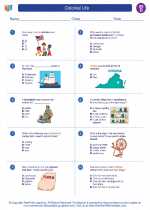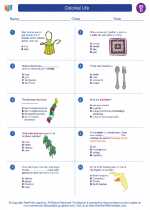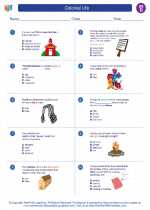Colonial Life
Colonial life refers to the lifestyle, culture, and society of the American colonies during the 17th and 18th centuries. The colonial period was characterized by the establishment of the thirteen original colonies, which were primarily under British rule. This era was marked by significant developments in agriculture, trade, and the growth of diverse communities.
Economic Life
The economy of the colonial period was primarily agrarian, with farming being the main occupation. The colonists cultivated crops such as corn, wheat, and tobacco, and engaged in livestock farming. Trade and commerce also played a significant role, with ports and trading posts being established along the Atlantic coast.
Social Structure
Colonial society was hierarchical, with a distinct class structure. The upper class consisted of wealthy landowners and merchants, while the middle class included skilled artisans, tradespeople, and small farmers. The lower class comprised indentured servants, slaves, and laborers.
Cultural Life
Religion was a central aspect of colonial life, with various denominations such as Puritanism, Anglicanism, and Quakerism shaping community life. Education was limited, with some colonies establishing schools to educate children, primarily in reading, writing, and arithmetic.
Government and Politics
The colonial period saw the establishment of colonial governments, which were often based on representative assemblies and local councils. However, these governments were ultimately subject to British rule, leading to tensions that eventually culminated in the American Revolutionary War.
Study Guide
- What were the main economic activities in the colonial period?
- Describe the social structure of colonial society.
- How did religion and education influence colonial life?
- What were the key features of colonial government and politics?
- What were the major factors leading to the American Revolutionary War?
Understanding colonial life is essential for comprehending the early foundations of American society and the factors that led to the quest for independence from British rule. Studying this period provides valuable insights into the cultural, economic, and political dynamics that shaped the United States during its formative years.
.◂Social Studies Worksheets and Study Guides Fourth Grade. Colonial Life

 Worksheet/Answer key
Worksheet/Answer key
 Worksheet/Answer key
Worksheet/Answer key
 Worksheet/Answer key
Worksheet/Answer key
